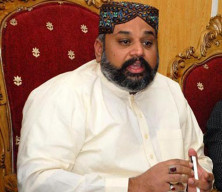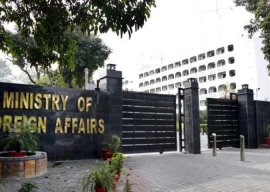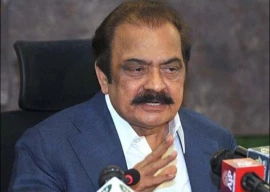
A fresh debate on the status of Gilgit-Baltistan was at the forefront of a Supreme Court hearing on Wednesday of two identical petitions regarding the enforcement of fundamental rights and appointments of judges in the G-B Supreme Appellate Court.
Attorney General Maulvi Anwarul Haq submitted, before a three-member bench of the apex court, that the Gilgit-Baltistan Self Governance & Empowerment Ordinance 2009, under which the affairs of the area are currently being run, was issued by the federal government.
Justice Jan asked the attorney general whether, under article 248 of the Constitution, the president could only issue such an ordinance, on the advice of prime minister, for areas that do not fall in any province. “If it’s true that the president did not issue the ordinance then the court could declare it null and void,” he said.
Haq told the court that the status of the area was also not clear due to some international disputes.
Highlighting the importance of the matter, the court directed the attorney general to submit a concise statement on the issue before the court.
However, on Haq’s request, the court issued notices to the federal government and the relevant ministry to submit their written reply in this regard within 15 days.
The court was hearing a petition by Dr Ghulam Abbas, a resident of the area, against the appointment of Rana Mohammad Arshad Khan as chief judge of the G-B Supreme Appellate Court.
The attorney general told the court that an appellate court had been established under the 2009 governance ordinance to ensure the right to appeal against G-B court decisions.
Responding to a query, Haq conceded that the appointments are made in the G-B court following an old method of appointment instead of the 2009 governance ordinance.
Akram Chaudhry, Abbas’ counsel, had prayed the court to declare the appointments of retired judges in the G-B Supreme Appellate Court illegal, unconstitutional and against the fundamental rights of the people.
After hearing of the court, Suleman Akram Raja, lawyer of the bar association of G-B, told The Express Tribune that there was no dispute on the status of the area.
The enforcement of fundamental rights there was an issue due to which they approached the highest court of the country.
Published in The Express Tribune, February 23rd, 2012.
COMMENTS (8)
Comments are moderated and generally will be posted if they are on-topic and not abusive.
For more information, please see our Comments FAQ

















@Ashutosh:
it is not illegal
if it is. then partion of bengal and punjab is illegal
indians neither can't give us freedom nor independence. who kashmir gilgit can not live without independence or freedom.
just go back to your india, don't come back here again.
you make fool of yourself. this issue does not concern you.
if you don't concern for us freedom and independence.
the reason hindu dominated regions living well. is that india got freedom independence.
if you don't like our problems then get life in your india. don't come and concern with our problems.
Indians are not for united india nor divided india on two nation theory as advised by UK.
They are stupid indians who could not make their mind, to give freedom and independence.
for them delhi mumbai raj militarization not freedom or independence.
india is created illegal that should be destroyed, like the soviet empire.
no communism no indianism that will be our point then we can achieve independence and freedom.
The GB situation needs to be clarified because it turns into another Balochistan.
The court was approached with the pray to nullify the appointment of a judge which is one of the dozen of judges appointed illegally and by passing the merit. The court would not be able to make a decision unless the whole situation is not discussed. I doubt the petitioner would withdraw his appeal in the mid way as the benefactors of the petitioners would not like to bring the whole situation of GB in the discussion. The discussions if taken place would lead to some very basic questions already raised from time to time. The very first question. Is the executive order of the President is valid or he has to issue an ordinance to this effect. In the case of an ordinance the same has to be presented in the parliament for legislation once the time of its effectiveness is over. is this affordable for Pakistan?
Pakistan should give GB and FATA a status which is equal to rest of the provinces (i.e. Sindh, KP, Punjab & Baluchistan). Bring them to the main stream. I'd even suggest to make every division a small federating unit so that allocation of the resources is aportioned properly under NFC AWARD.
Neither any "document of accession to Pakistan" nor any "resolution by the elected member of assembly". The Pakistani occupation is not disputed but totally illegal.
It is clear that Gilgit Baltistan is diputed teretory and uner controled of Pakistan till the solution of kashmir dispte then Pakistan leave the region and restore the independent status of the region.
" .... Unclear status: SC seeks statement on status of G-B ... "
Under illegal occupation by Pakistan.
One seriously wonders what does Ministry of Law do?. Why does it create so much confusion